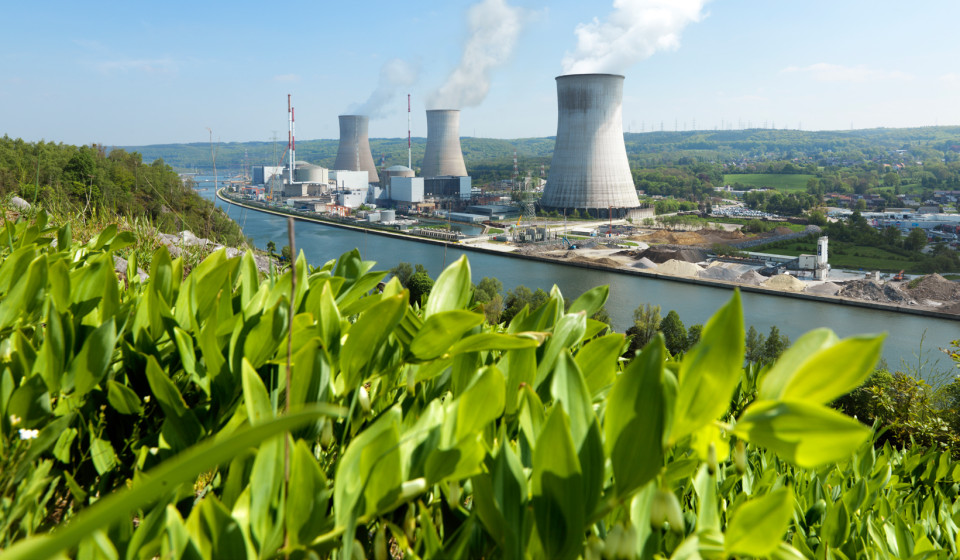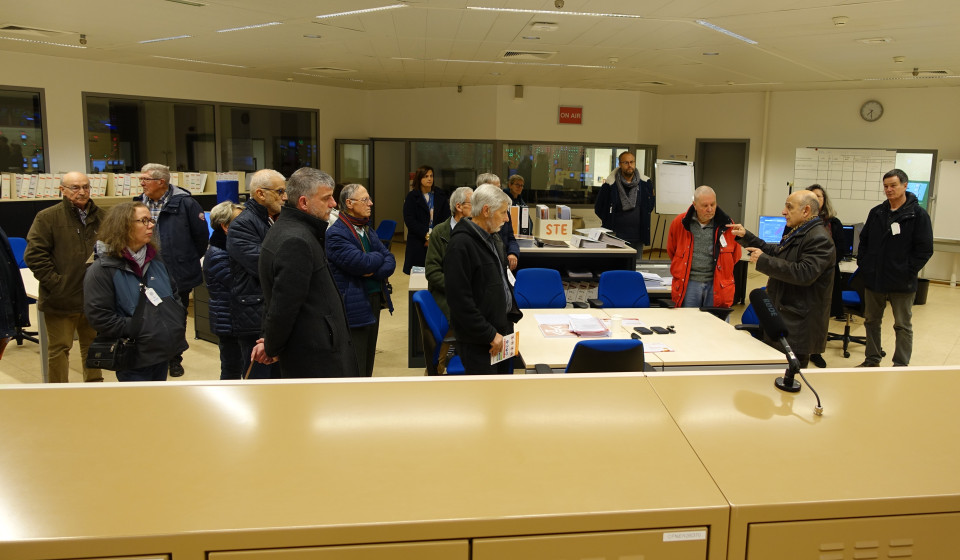The Tihange nuclear power station
These reactors are among the safest in the world. The two reactors in production have a total capacity of 1992 MW. Tihange 2, with a capacity of 1008 MW, was taken out of service on January 31, 2023.
The power station of Tihange: historical
In the late 1960s Belgium chose nuclear power to produce part of its electricity. Electricity consumption was rapidly growing and fossil fuels were no longer able to meet the rising demand. Therefore the government decided to build four nuclear reactors in Doel and 3 in Tihange.
In 1968, Tihange 1 was ordered. The power station was commissioned in 1975, just in time to reduce Belgium’s dependence on oil. Tihange 2 went online in mid 1983 and Tihange 3 followed in 1985.
The power station is located on the right bank of the river Meuse, near Huy and 25 km south-west of Liège. The location meets all safety requirements. Prior to construction, numerous detailed studies were carried out as to the quality and stability of the soil, the availability of water from the Meuse, local weather conditions and the natural and human environment.
On 31 January 2023, Tihange 2 became the first of the three reactors to be permanently shut down, as stipulated by the Nuclear Shutdown Act of 31 January 2003.
On 13 December 2023, ENGIE and the Belgian government signed an agreement on the 10-year extension of the operation of the Tihange 3 and Doel 4 nuclear power plants and the transfer of all nuclear waste obligations. Under this agreement, Doel 4 and Tihange 3 have been owned by BE-NUC, a 50/50 joint venture between the Belgian state and ENGIE, since 14 March 2025.
On 14 February 2025, Doel 1 was permanently shut down after 50 years of operation, as stipulated by the nuclear exit law of 31 January 2003.
On 15 May 2025, the House of Representatives gave its approval for the amendment of the Nuclear Exit Act of 31 January 2003. From now on, it will be called the 'Act on Nuclear Energy for Industrial Electricity Production'. The provision that no new nuclear power plants can be built has been removed. The closure dates of nuclear power plants have also been removed from the Act. This change in the law had no concrete impact on the planned shutdown of Tihange 1 and Doel 2 later that year.
Key figures
Nuclear reactors of PWR type (Pressurized Water Reactor), 2 of which are in operation and 1 is being decommissioned
total capacity
Electrabel employees
hectares of land
regulated controls and 50 audits per year
Characteristics
| Tihange 1 | Tihange 2 | Tihange 3 | |
|---|---|---|---|
| Capacity (MW) | 962 | 1008 | 1030 |
| In service since | 01/10/1975 | 01/02/1983 | 01/09/1985 |
| Planned closure date | 01/10/2025 | 01/02/2023 | 01/11/2035 |
| Employment | More then 1000 Electrabel employees and up to thousands of external employees each year | ||
News about Tihange
The nuclear power plants of Doel and Tihange attach great importance to the relationship with their surroundings. They have established consultation bodies to engage with all local stakeholders. Everyone who lives near the nuclear power plants, receives the community magazine Doelbewust / Tihange Contact.
Our nuclear professionalism explained
What is nuclear power? How is electricity produced in a nuclear power plant? How do the Belgian plants of Doel and Tihange work and what does their future look like? You can read all this in our brochure 'Nuclear professionalism, from start to finish'.

Environmental Declaration Tihange

Comité des riverains

Visit
